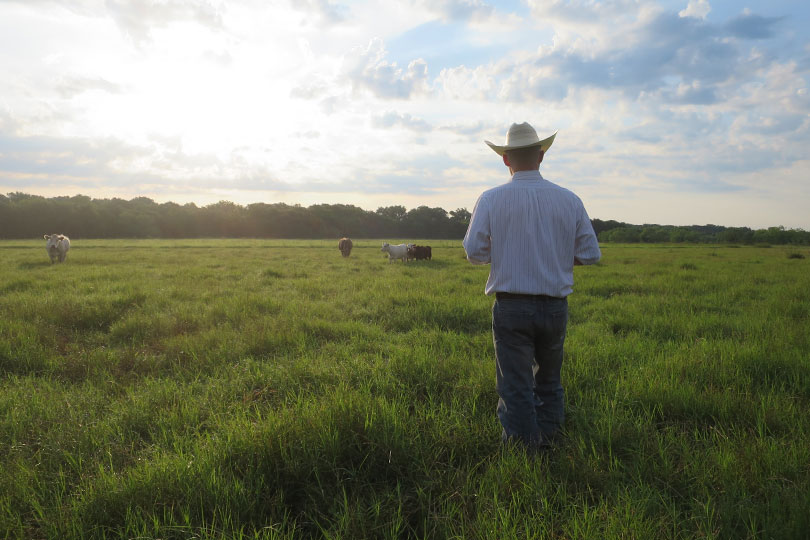By Shelby Shank
Field Editor
Farming and ranching can be demanding and stressful, and that can have an impact on mental health and well-being of farmers, ranchers, farm workers and agricultural professionals.
During the month of May, an additional focus is placed on these challenges for Mental Health Awareness Month.
Studies show farmer and rancher suicide rates are several times higher than the national average.
“There are so many unpredictable experiences in farming, such as natural disasters, financial uncertainty, fluctuating markets, labor shortages and trade disruptions,” Jessica Cabrera, American Farm Bureau Federation (AFBF) managing director of Member Engagement, said. “There are so many factors that contribute to extreme stress for farmers and ranchers. And they also often live in a very isolated setting, which can compound the issue.”
But there are resources available to help.
AFBF’s Farm State of Mind campaign builds awareness and reduces stigma surrounding mental health challenges for farmers and ranchers, and to increase access to information, resources and training for farm and ranch communities.
The Farm State of Mind webpage features many resources available to help if you or someone you know is struggling.
Included is a national resource directory that is searchable by state, national, resource type and resource name to get the help you or someone you know needs.
Other resources available offer helpful tips on how to help someone in emotional pain and how to start the conversation with them.
There also is an anonymous peer-to-peer online community, Togetherall, to empower farmers, ranchers and their families to get and give support.
“This resource offers a space for farm family members, ages 16 and older, a way to express themselves anonymously and to receive and give peer support,” Cabrera said.
Anyone can be an advocate for mental health in rural America.
“The most impactful way to advocate for mental health wellness among farmers and ranchers is to let everyone know it’s okay not to be okay,” Cabrera said. “Just reducing that stigma alone, encouraging those who are struggling to reach out for help and to let them know that that is completely acceptable way to move forward. Empowering people to believe that reaching out for help is a sign of strength, not a sign of weakness.”
There is no definitive sign that a person is having a mental health crisis. However, there are several signs to consider:
- Change in routines or social activities
- Decline in the care of domestic animals
- Increase in illness or other chronic conditions
- Increase in farm accidents
- Decline in appearance of the farmstead
- Decreased interest in activities or events
For more information on stress and mental health resources, visit AFBF’s Farm State of Mind webpage.


Leave A Comment